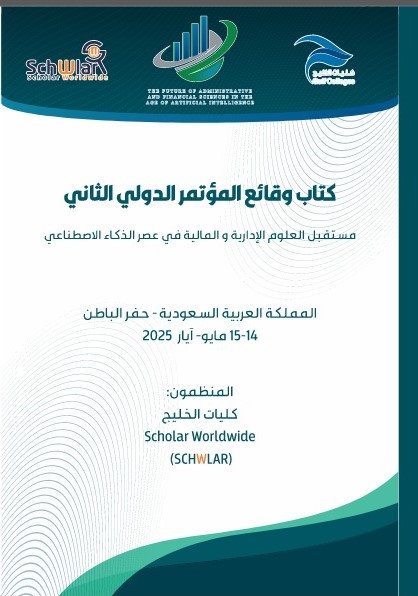Evaluating the effectiveness of artificial intelligence in health information management according to CBAHI standards A case study at Prince Sultan bin Abdulaziz City for Humanitarian Services
Main Article Content
Abstract
The healthcare sector is undergoing rapid digital transformation, with artificial intelligence (AI) emerging as a strategic tool for enhancing health information management and ensuring compliance with accreditation standards such as those of the Saudi Central Board for Accreditation of Healthcare Institutions (CBAHI).
This study evaluates the effectiveness of AI applications in managing health information, based on healthcare professionals’ perspectives, and assesses their alignment with CBAHI requirements. Structural Equation Modeling was used to analyze direct and indirect relationships among variables.
A quantitative approach was employed through an electronic questionnaire distributed to practitioners in a major Saudi healthcare institution. A theoretical model was developed, encompassing dimensions such as data accuracy, retrieval speed, information security, system integration, decision support, and user satisfaction.
Results indicated a statistically significant positive impact of AI on improving data quality, enhancing access speed, strengthening security, supporting decision-making, and increasing user satisfaction. Furthermore, “decision support” and “information security” were identified as mediators between AI usage and effective information management.
The study concludes that AI plays a vital role in advancing health information management in accordance with CBAHI standards. It recommends further investment in AI technologies, broader adoption in electronic health records, and targeted training programs to support effective implementation.
Article Details

This work is licensed under a Creative Commons Attribution 4.0 International License.
